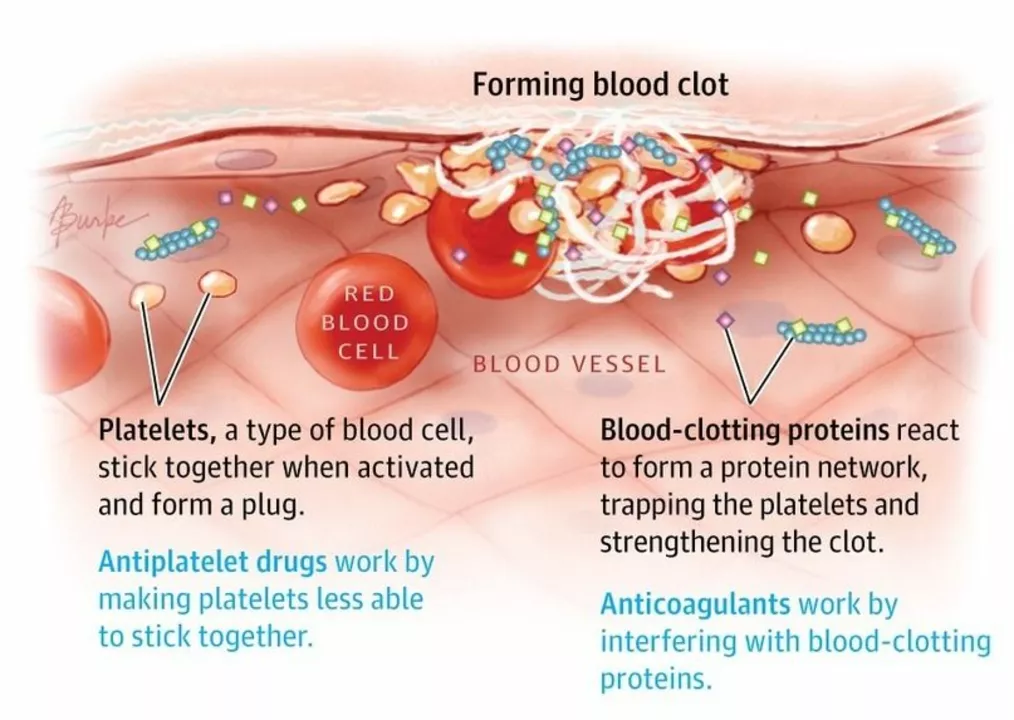Heart attacks: spot them fast, act fast
Heart attacks don’t always look like the movies. Sometimes it’s crushing chest pain, other times it’s mild discomfort, shortness of breath, or just sudden fatigue. Knowing the common signs and a few simple emergency steps can save time and lives.
Recognize the signs
Typical symptoms include chest pressure or tightness that lasts more than a few minutes, pain spreading to the left arm, jaw, neck, or back, and sudden shortness of breath. Look for sweating, nausea, lightheadedness, or fainting. Women and older adults may have less chest pain and more jaw, back, or stomach discomfort.
Don’t ignore sudden new breathlessness or a fast, irregular heartbeat. Those can be signs of a heart problem or of fluid in the lungs (pulmonary oedema), which needs urgent care—read more on swelling and breathing problems in our oedema guide: https://canadadrugsdirect.su/26573
What to do right away
If you suspect a heart attack, call emergency services immediately. Time matters. While waiting for help: stop activity, sit or lie down and try to stay calm. If you are not allergic and are not on a blood-thinning plan, chew one 325 mg aspirin — chewing works faster than swallowing.
If someone collapses and is not breathing normally, start CPR and, if available, use an AED. If you’ve been prescribed nitroglycerin, follow your doctor’s instructions — don’t take it unless a provider told you to use it for chest pain. Avoid driving yourself to the hospital unless there’s no other choice.
Reduce your risk every day
Many heart attacks are preventable. Focus on blood pressure, cholesterol, smoking, blood sugar, weight, activity, and alcohol. Small, steady changes beat quick fixes. Walk 30 minutes a day most days. Cut back on processed foods, added sugars, and salty snacks. Swap saturated fats for olive oil, nuts, fish, and vegetables.
High LDL cholesterol is a big risk factor. If lifestyle changes aren’t enough, doctors may suggest statins like simvastatin (Zocor). We have a clear guide on Zocor, how it works, and what to watch for: https://canadadrugsdirect.su/27341
Other smart moves: quit smoking, keep diabetes controlled, manage stress, and get checked for sleep apnea if you snore and feel tired during the day. Regular checkups help catch problems early.
If you’re worried about symptoms or your risk, talk to your doctor today. Use this page as a quick reference, and bookmark our resources for deeper reads on treatments, medicines, and warning signs.
The Link Between Blood Clots and Heart Attacks
As a blogger, I recently came across some fascinating information about the link between blood clots and heart attacks. It turns out that blood clots are a significant cause of heart attacks, as they can block the flow of blood to the heart muscle. When this happens, it can lead to a heart attack, which can be life-threatening if not treated promptly. It's essential to be aware of the risk factors for blood clots, such as smoking, obesity, and a sedentary lifestyle, in order to take preventive measures. In conclusion, understanding the connection between blood clots and heart attacks can help us take better care of our cardiovascular health.

